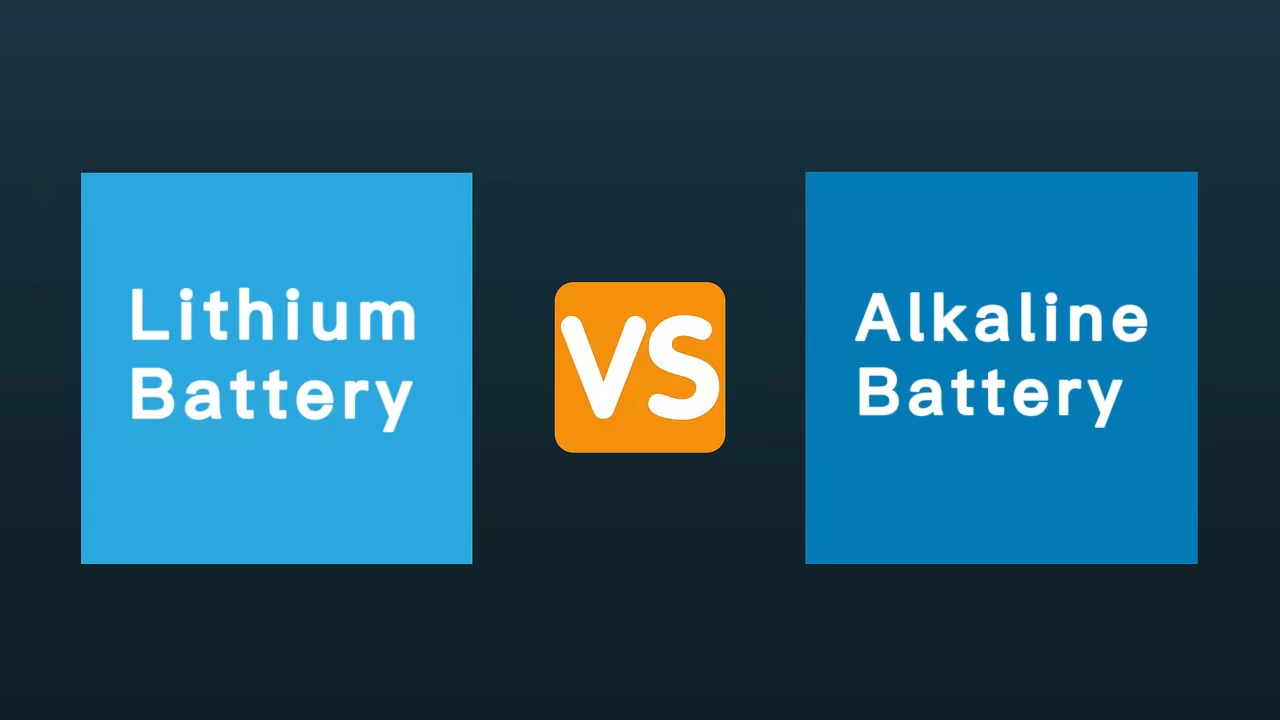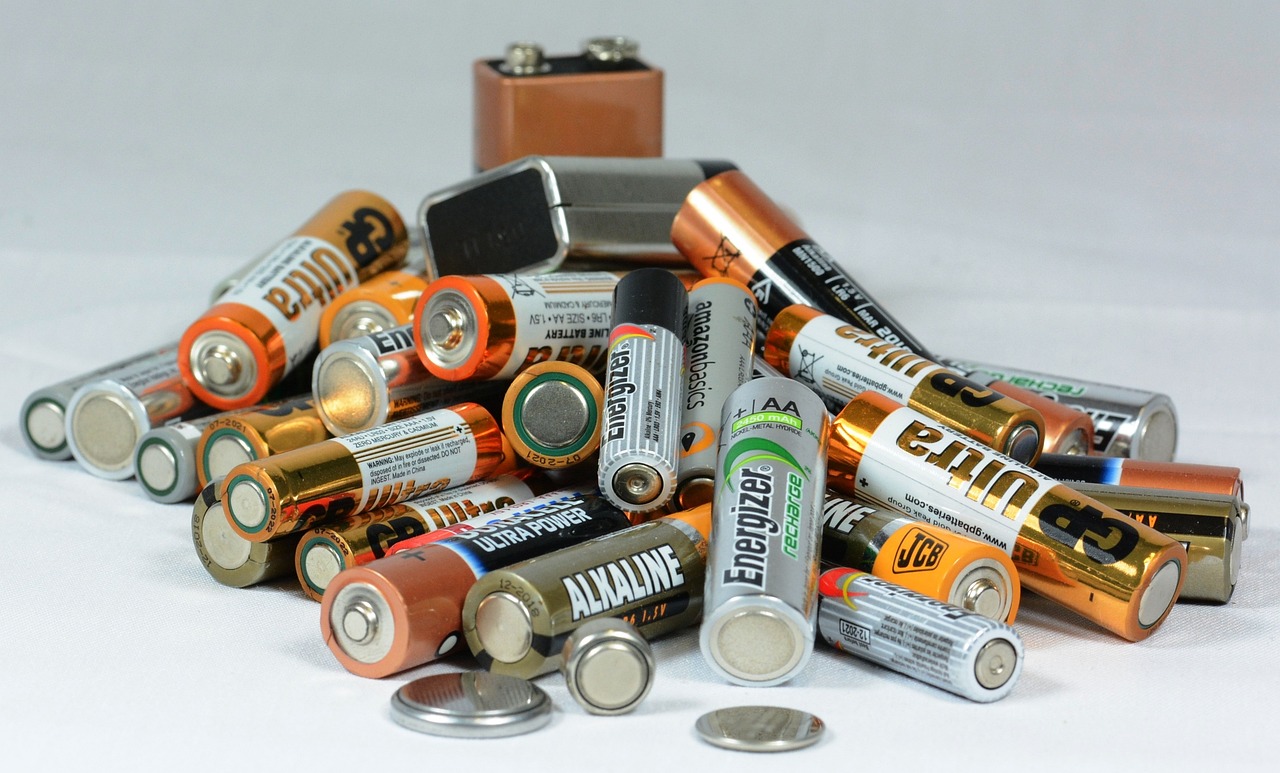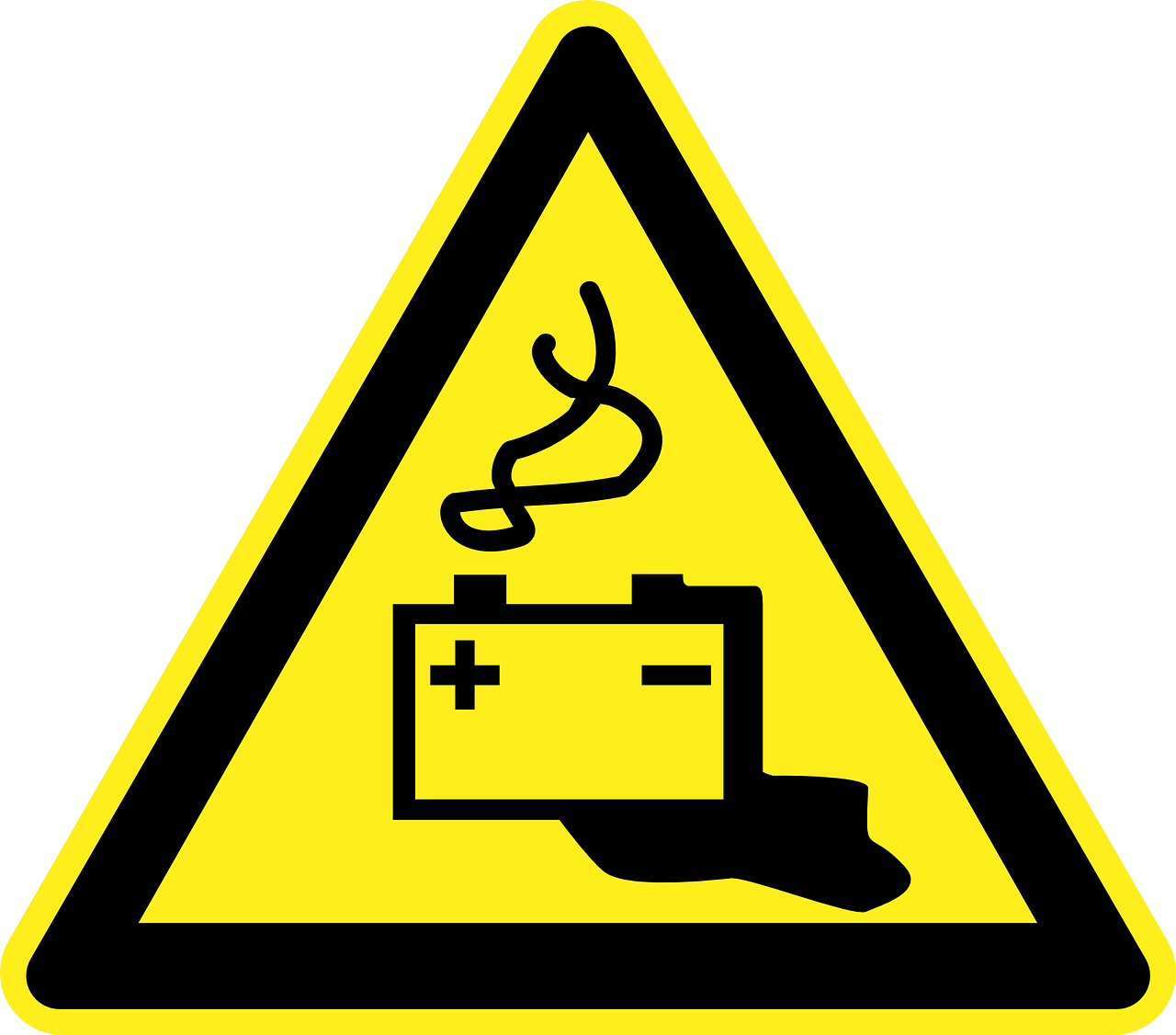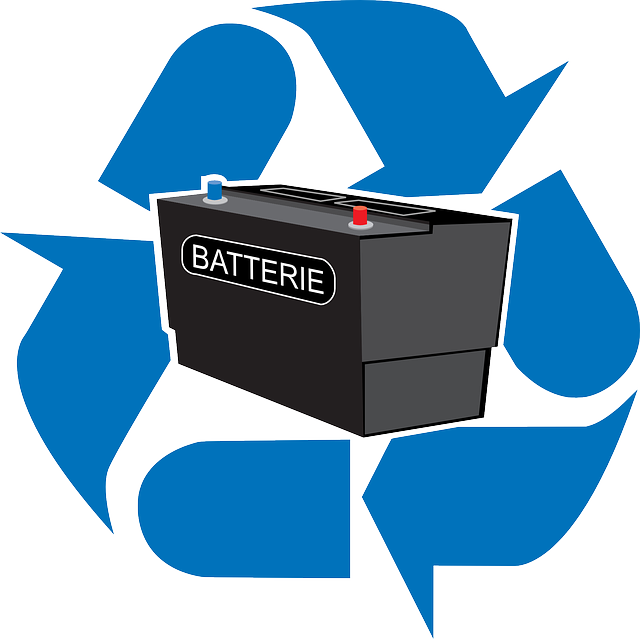Power Struggle: Lithium Battery Life vs Alkaline Showdown

The use of batteries to power consumer electronics has become increasingly popular in the last decade. Lithium-ion and Alkaline batteries are two commonly used battery technologies. A recent survey of consumers found that 80% felt they did not have enough control over their device’s battery life. This article will explore the differences between lithium-ion and alkaline batteries, focusing on how each type can help provide users with more control of their devices' lifespan.
Lithium-ion (Li-Ion) and alkaline batteries both offer distinct advantages for powering small electronic devices such as smartphones, tablets, cameras, and gaming controllers. Li-Ion batteries contain a higher energy density than traditional alkaline cells; this allows them to store more electrical charge per unit volume or mass compared to other types of rechargeable cell chemistries. As a result, Li-Ion technology is becoming increasingly popular in consumer electronics due to its ability to hold a charge longer than comparable alternatives. (Learn More Top Questions About Lithium Batteries!)
Although lithium batteries have many advantages, alkaline batteries also have their own unique features. They are inexpensive and widely available in most stores which makes them an attractive choice for short-term projects where recharging may be inconvenient or impractical. In addition, these cells possess greater shelf lives than comparable Li-Ion options due to their low discharge rates while not being used. Therefore, it is important for users who need long-lasting battery power without frequent charging cycles to understand the pros and cons of each option before deciding which one best fits their needs.
What is the Difference Between Lithium and Alkaline Batteries?
Type of lithium battery and alkaline
There are four types of lithium-ion batteries and two types of alkaline batteries. Lithium-ion (Li-Ion) is the most commonly used type, with many electronic devices relying on this technology to power them up. It offers a high energy density, making it great for powering phones, laptops, and tablets. On the other hand, we have Lithium-Polymer (LiPo). This type has a low thickness compared to Li-Ion but provides more capacity while still maintaining its flexibility.

Alkaline batteries are single-use disposable batteries that rely on an electrochemical reaction between zinc and manganese dioxide to generate electricity. The most common alkaline battery is the Alkaline-Manganese (AM) type, but there are also variants such as the Zinc-Carbon (ZC) type which offers longer shelf life than AMs.
Advantages And Disadvantages
When it comes to lithium battery life vs alkaline, there are a few key advantages and disadvantages of each. Here’s a quick comparison:
Lithium Battery:
+ Longer shelf lives.
+ Holds a charge better over time.
+ Lighter weight than alkaline batteries.
- Can be hazardous if not disposed of properly.
- More expensive than alkaline batteries.
Alkaline Battery:
+ Readily available in stores.
+ Lower cost than lithium batteries.
- Shorter shelf lives.
- Become less efficient when stored for long periods of time.
| Lithium Battery | Alkaline Battery | |
| Chemical | Li | Zn, MnO2, KOH |
| Capacity | 3800mAh | 2500mAh |
| Shelf Life | 5-10 Years | 2-3 Years |
| Cycle Durability | 500 | 200 |
| Energy Density | 160 Wh/kg | 100 Wh/kg |
| Internal Resistance | Low | High |
| Weight | Light Weight | Heavy |
| Opwerational Temperature | -10℃~+55℃ | -18℃~+50℃ |
| Cost | Costly | Cheap |
| Safety | Easy to catch fire | Easy to leak |
| Applications | Microphones, Toy, Clocks and remotes | Digital cameras, Medical devices, Communication equipment |
Related Reading: Can Lithium Ion Batteries Leak?
An informed buyer knows their options - understanding what each type offers can make all the difference in getting just the right battery for your application's requirements. Whether selecting lithium or alkaline depends largely on personal preference and budget constraints - either way there is sure to be an ideal solution out there for every situation!
Lithium Battery VS Alkaline Battery
(1) Efficiency Comparison
When considering the efficiency of lithium and alkaline batteries, there are numerous factors to consider. Lithium batteries tend to be more efficient than alkaline in terms of energy output and long-term life span. For example, a single-cell lithium battery can provide up to three times as much power as an equivalent alkaline battery. Furthermore, the life expectancy of a lithium battery is typically longer than that of an alkaline one, with some models lasting for over 10 years. In comparison, most alkaline batteries have a lifespan of around two or three years under ideal conditions.
In addition to their superior longevity and power output, lithium batteries also offer additional advantages over their alkaline counterparts. Lithium battery require less maintenance since they do not need regular recharging like other types of rechargeable batteries. Furthermore, these cells are able to retain their charge for far longer periods compared to traditional non-rechargeable ones such as nickel-cadmium (NiCd) and lead acid (PbA). This makes them particularly useful in applications where frequent use is required but limited access to electricity is available.
(2) Capacity Comparison

When it comes to the capacity comparison of lithium vs alkaline batteries, the long-lasting performance offered by lithium batteries is a clear advantage. Lithium batteries boast up to three times the capacity of traditional alkaline batteries, providing users with an impressive duration for their power needs. This extended life means that consumers can rely on their devices powered by these types of cells longer than those using standard alkaline alternatives. On average, lithium battery life ranges from two to four times as long as conventional alkaline offerings.
The difference in lifespan between these battery types is due largely to the differences in chemical composition and construction. Alkaline cells are composed of zinc and manganese dioxide while lithium models use metallic lithium or Li-ion technology; both materials have higher energy density than other chemicals used in most common battery designs. Additionally, the internal structure of some lithium cell designs features more layers which allow them to store greater amounts of energy compared to single-layer counterparts such as alkalines.
It’s easy to see why many device manufacturers opt for incorporating high-capacity lithium batteries into their products: they offer superior longevity when compared to alternative chemistries like alkaline, ensuring robust operation no matter what application they are being used for. As a result, individuals who require reliable power sources for critical applications or operations should look at selecting rechargeable lithium solutions over conventional options such as alkalines for maximum efficiency and reliability.
(3) Charge Cycle Comparison

The lifespan of a battery is determined by its charge cycles, which refer to the number of times it can be recharged. This means that while capacity comparison between lithium and alkaline batteries may show similar results, their respective charge cycle comparisons could vary significantly.
Lithium batteries offer greater efficiency when compared to alkaline batteries in terms of charging time. Lithium-ion batteries usually take less than two hours to fully recharge and have higher charge cycles at around 300-500 per full life cycle whereas alkaline batteries typically require about 6-8 hours for full charge with only 100-200 charges over its lifetime. As such, lithium batteries provide better value for money as they last longer and need fewer replacements due to their superior charge cycle efficiency.
(4) Cost Analysis
The cost of batteries is an important factor to consider when choosing a lithium battery and alkaline. To compare the two, a table was created with three columns: battery type, cost per unit, and life expectancy (in hours).
| Battery Type | Cost Per Unit | Life Expectancy (Hours) |
|---|---|---|
| Lithium | $4 | 5 |
| Alkaline | $2 | 2 |
As seen in this table, lithium batteries have higher costs up-front but last five times longer than their alkaline counterparts. Therefore, though initially more expensive, over time they are much cheaper due to their extended lifespan. By using lithium batteries instead of alkaline ones, consumers can save on average around 60% compared to the total cost spent on purchasing multiple sets of alkalines.
The same amount of money could buy one set of lithium that would provide power for five times as long as it would if used on four sets of alkaline cells. This makes them highly economical and a good choice for those looking to get the most out of their battery budget.
From a practical standpoint, investing in lithium cells provides several benefits such as increased reliability and performance even under extreme conditions, and by utilizing advanced technologies such as nanotechnology and carbon-coating techniques, manufacturers are able to create lightweight yet durable products that offer superior power output at affordable prices.
Overall, both lithium and alkaline batteries have advantages depending on how they will be used; however, when considering cost-effectiveness and longevity it is clear that lithium cells are more suitable for many applications due to their greater value-for-money ratio. In terms of battery life versus price point analysis then there is no better option than lithium-powered solutions providing users with reliable sources of energy while saving them money in the process.
(5) Temperature Performance Comparison

The thermal performance of lithium and alkaline batteries is a key factor in determining the lifespan of both battery types. It is important to understand that temperature affects the rate at which lithium ion cells discharge, while alkaline cells remain relatively unaffected by temperature. This means that when exposed to extreme temperatures, such as those experienced during hot summers or cold winters, the life expectancy of a lithium battery will be drastically reduced compared to an alkaline equivalent.
In order to evaluate how well each type of battery performs under varying temperatures, it is necessary to measure both their open circuit voltage (OCV) and internal resistance (IR). OCV measures the potential difference between two terminals on a cell, while IR measures the amount of current required for a certain voltage drop across its terminals. The results show that lithium batteries have consistently lower OCV values than alkaline counterparts over all tested temperatures; however, their internal resistance remains largely unchanged with increasing ambient temperature whereas alkaline batteries exhibit significant increases in IR values.
When evaluating overall battery performance in terms of temperature endurance, one must take into account several factors:
- Lithium-ion batteries are more sensitive to changes in environmental conditions than regular alkalines due to their higher power density and sensitivity toward alteration from external sources;
- Alkaline cells offer greater resilience against extreme heat or cold despite exhibiting increased IR levels above certain thresholds;
- When considering longevity and cost-effectiveness, lithium-ion technology may be preferable for applications where consistent output levels are expected regardless of changing environmental conditions;
- In contrast, if reliable operation over extended periods without any noticeable decline in performance is desired then traditional alkaline solutions should be used instead.
It can therefore be seen that although there are some differences between lithium and alkaline technologies regarding their respective temperature performances, neither offers perfect insulation against extreme weather conditions but rather tradeoffs must be made depending on the specific application requirements.
(6) Shelf Life Comparison

Lithium and alkaline batteries have been widely used in many applications, but how do they compare when it comes to shelf life? Recent studies show that lithium battery life can last up to 10 years while alkaline batteries are said to last only around 5 years. This is a significant difference of over double the lifespan for lithium-based products.
The advantages of using lithium batteries extend far beyond just their longer shelf life, however. Lithium cells also offer superior performance with high energy densities, making them ideal for uses where power efficiency is important. Alkaline batteries may be better suited for applications requiring low cost or mass production due mainly to their lower price point.
So what does this mean for consumers? Knowing the differences between these two types of batteries will help narrow down your options and make an educated decision about which type best suits your needs. With long-lasting memory capacities and increased safety features, utilizing a lithium battery could provide greater peace of mind than relying on an alkaline cell over the long term. Ultimately, understanding the benefits each type brings helps to ensure you get exactly what you need from your purchase.
(7) Safety Considerations

Safety is an important consideration when selecting a battery type. Both lithium and alkaline batteries carry associated risks that must be weighed carefully.
Lithium safety concerns include the potential for thermal runaway if overcharged, as well as short circuits due to damage or improper handling of the cells. Additionally, there are certain safety requirements in place for shipping and storing lithium batteries. Alkaline safety issues arise from the corrosion of contacts and terminals, which can cause leakage and create fire hazards. Therefore, it is essential to choose appropriate storage conditions with regard to temperature and humidity when using this type of battery.
When handling either type of battery, users should take precautions to avoid contact between different types of battery cells and components such as metal objects like keys, coins or paper clips; these items may cause sparks, resulting in heating up the cell and potentially leading to a hazardous situation. In addition, always use protective equipment like gloves and eye protection when working with any kind of rechargeable or non-rechargeable battery system. Lastly, all instructions provided by manufacturers should be followed closely in order to ensure safe operation at all times.
(8) Recycling Options

With the safety considerations for both lithium and alkaline batteries now established, it's time to look into their recycling options. Recycling these batteries is important because they contain chemicals that can be hazardous if not disposed of properly. Thankfully, there are many ways to recycle them responsibly.
When it comes to lithium-ion batteries, they must be recycled at a certified facility or shipped off with a recycler. This ensures that any dangerous substances found in the battery will be processed safely, without causing any environmental damage or risking public health. It’s also important to remember never to incinerate them as this could lead to further pollution and adverse health effects.
On the other hand, alkaline batteries may be recycled at local facilities such as waste management centers, community drop-off sites, retail stores and special collection events. These locations accept all types of single-use batteries including AA, AAA and more. Consumers should take care not to mix different kinds of batteries together when disposing of them for recycling purposes as this affects their effectiveness during the recycling process.
(9) Impact On The Environment

Have you ever wondered what the environmental impact of using lithium batteries versus alkaline batteries is? It turns out, there are many differences between these two types of energy sources. When it comes to measuring their respective impacts on our planet, we must consider their energy consumption and carbon footprints.
Lithium batteries have a much higher energy density than alkaline batteries, meaning they can power devices for longer periods of time with less output. This makes them ideal for use in portable electronics such as laptops or smartphones due to their ability to hold more charge per unit weight. Additionally, lithium batteries also produce fewer greenhouse gases during production, making them better for the environment overall.
On the other hand, alkaline batteries generate greater amounts of toxic waste when disposed of improperly and pose a greater risk of groundwater contamination than their lithium counterparts. Furthermore, manufacturing processes involved in creating alkaline cells consume large quantities of water and electricity which contributes further to its environmental footprint.
It is clear that both types of battery technology come with distinct advantages and disadvantages regarding sustainability concerns. From an ecological perspective, lithium has emerged as the superior choice over alkaline due to its lower emissions profile and extended lifespan without compromising performance capabilities.
(10) Quality Assurance Practices
The quality assurance of a battery is critical for any consumer. Lithium and alkaline batteries have different testing processes to ensure their effectiveness in the desired application.
| Quality Assurance | Lithium Batteries | Alkaline Batteries |
|---|---|---|
| Testing Processes | Durability, performance, and capacity tests | Safety, voltage output tests |
| Standards Met | UL 1642, IEC 62133 | ANSI/NEDA 15A |
When it comes to lithium-battery-quality assurance practices, lithium battery manufacturers must adhere to specific standards such as UL 1642 and IEC 62133. This includes ensuring that all components within the cell meet safety requirements and are durable enough to withstand external conditions like extreme temperatures. Performance and capacity tests are also conducted during this process.
On the other hand, alkaline-battery-quality assurance requires meeting standards set by ANSI/NEDA 15A which include evaluating factors such as current load characteristics and open circuit voltages. In addition, several safety measures are taken through voltage output tests which measure potential risk levels prior to release into the market.
It is essential for both types of batteries to follow these battery-assurance practices and undergo rigorous battery-testing processes before they can be sold commercially. The resulting outcomes determine whether a product meets lithium-alkaline-quality standards or not - allowing consumers peace of mind when using them in various applications.
Should I Use Lithium or Alkaline Batteries?
More Suitable for Lithium Battery Devices
“As the saying goes, 'it's a thin line between success and failure,' and this holds true for lithium batteries versus alkaline batteries. Lithium batteries offer more power in comparison to their alkaline counterpart, but there are also devices that are much better suited for either type of battery.
To help you understand which device is best for each battery type, here is a list of common items:
- Smartphones - Lithium ion
- Laptops - Lithium polymer
- Digital cameras - Alkaline or rechargeable NiMH
- Portable speakers - Lithium ion
- Gaming consoles - Rechargeable LiPo (Lithium Polymer)
More Suitable For Alkaline Battery
- Toy
- Clock
- Lantern
- Thermometer
- Remote control
- Smoke detectors and fire alarms
Equipment that can use Lithium or Alkaline
- Flashlight
- Microphone
- Two-way radio
- Baby monitor
Conclusion
In conclusion, lithium batteries are generally more efficient, hold a longer charge cycle, and can be used in a wider range of devices than alkaline batteries. Alkaline batteries offer greater capacity with fewer charging cycles needed but tend to lose power faster than lithium batteries.
For those who want the most reliable battery life for their devices, there is no single answer as to which type of battery will meet all needs: both types must be carefully considered before making a purchase decision. Ultimately, choosing between lithium and alkaline depends on the specific requirements of your device or application. For example, if you need something to last over long periods without recharging then maybe an alkaline would be better suited; however, if you’re looking for something lightweight and portable then perhaps lithium would work best.
Where to Find the Best Lithium Battery Manufacturer?
HARVEYPOW - Top lithium battery manufacturer in china, has a range of advanced lithium-ion batteries that are ideal for all your energy storage needs. Our batteries are designed to give you the highest quality, reliability and performance, ensuring you always have the power you need, when you need it.
Whether you need energy storage for residential or commercial use, or for larger grid-scale applications, our lithium-ion batteries offer fast charging capabilities, long cycle life and excellent energy density. This makes them an ideal solution for any energy storage application.
It is worth mentioning that our 68 professional technical teams can provide a variety of customized functions to meet all your needs for batteries. We are not afraid that we will not be able to achieve it, but we are afraid that there will be no innovation and breakthrough.
Additionally, our products come with a 12-year warranty, giving our customers peace of mind and ensuring they can trust the reliability and longevity of their investment.
Learn more about premium lithium battery manufacturers:
